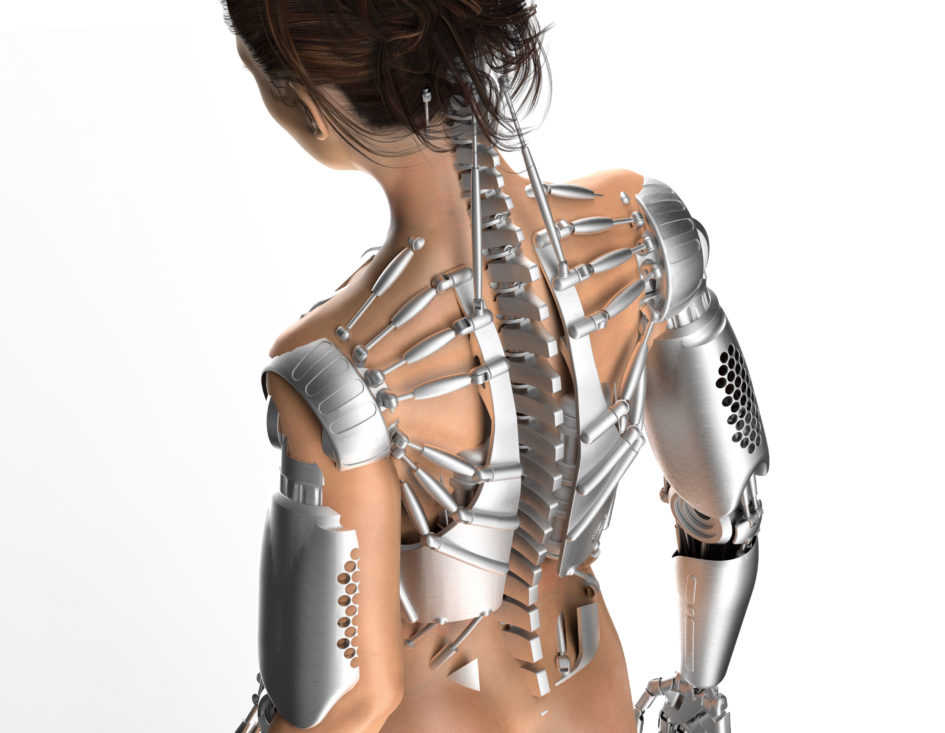A Man Turned Inside Out: The Externalized Social
If someone told you that their friends were all in their head, you’d probably think they were crazy or singing a Nirvana song. Friends exist out in the world after all, don’t they? Actually, the cognitive and social skills that make friendships possible are really all about the size of your brain and how effectively it is wired. British psychologist Robin Dunbar famously suggested that humans tend to only be able to manage around 150 strong social relationships, because of the limits to our cognitive capacity. Beyond that number, it becomes very hard for humans to remember or care about enough details to support such relationships.
Social Networks have their drawbacks, yes, but their sheer popularity is based on their ability to augment our social connectivity. They remember names, birthdays, images, and so much more for us, to a degree that the human brain simply cannot muster unaided.
The Things You Host, End Up Hosting You
Transhumanism is the idea that the human condition can and should be improved, using science and technology. There are a lot of fanciful notions about how people might become “more than human”, but the simple fact is that we are already migrating out from our bodies into our hardware, software, and networks. Of course, having thousands of Facebook friends is no consolation if you have a terminal illness, or at least not in the sense that it will save you… or is it? Consider that your growing presence in the cloud is increasingly a summation of all the information which constitutes your memory and personality. If that doesn’t make you a Transhuman already, then the question is what crucial ingredient hasn’t yet been uploaded to the cloud?
Cognitive Prosthetics and Personality Emulation
One answer to that question is Biology. The immensely complicated biological machinery that supports your human existence does not yet have a functional equivalent that we can upload. It is interesting to note, however, that people can and do adapt to prosthetic replacements of body parts; so much so in fact that it is hard to imagine that any part of the body other than the brain is so crucial to your identity that losing it would mean losing yourself. And even then, so-called “cognitive prosthetics” have been under steady development for over a decade now, including an artificial hippocampus (part of your brain’s limbic system which encodes long-term and spatial memories).
So, perhaps even your own biology is not as critical to your continued existence as you are inclined to imagine. Also consider that pattern recognition software is increasingly good at emulating learned patterns, such as adopting the styles of famous artists, copying grammatical patterns and so on. To a certain extent – perhaps a great extent – it is far from science fiction to imagine software emulating your personality, in order to generate new social content which matches the styles and patterns created by your original, biologically-based personality. When you combine the possibilities of cognitive prosthetics and cloud-based personality emulation, we see that the human mind has an increasingly powerful technological “corona” or “halo” starting to emerge.
An Old Boat and the Human Peripheral
There’s an old metaphorical story about a boat which you may have heard in Philosophy 101. The fishing boat is very old and is starting to spring leaks. Its owner plugs holes, replaces parts of the hull and so on. As the years go by, more and more of the boat is replaced, until eventually none of the original materials are present. The idea is that the boat is still there – its identity is preserved – despite the slow transformation. In fact, this is the case with the human body, which is composed of cells which are constantly dying and being replaced. We don’t even need to invoke prosthetics to think about bodies having their parts replaced, as cloned and otherwise genetically engineered organs are already in development.
In short, we humans have always tended to think of our personality as residing within us, and our friends and the environment being outside us. It would appear that we may now be in the process of slowly migrating our personalities to the cloud and that the biological “wetware” that makes life possible could be replaceable, in a piecemeal fashion. Think about that the next time you post a Tweet or update your Facebook status.

Leave a Reply